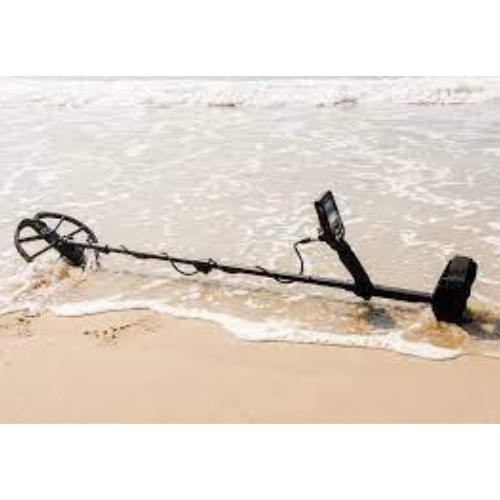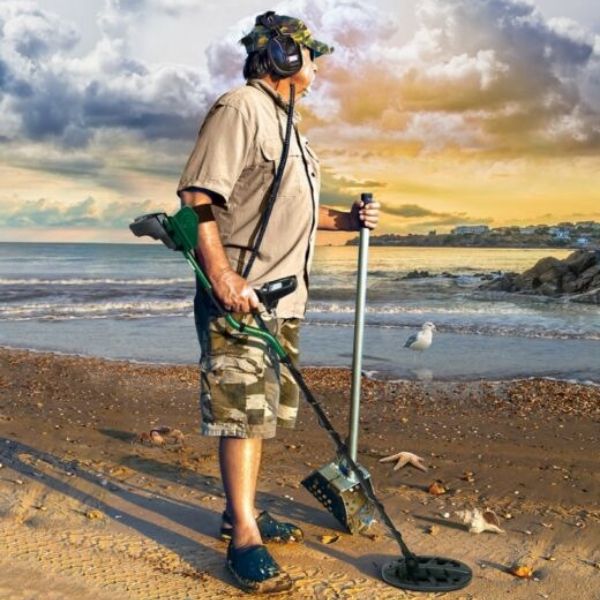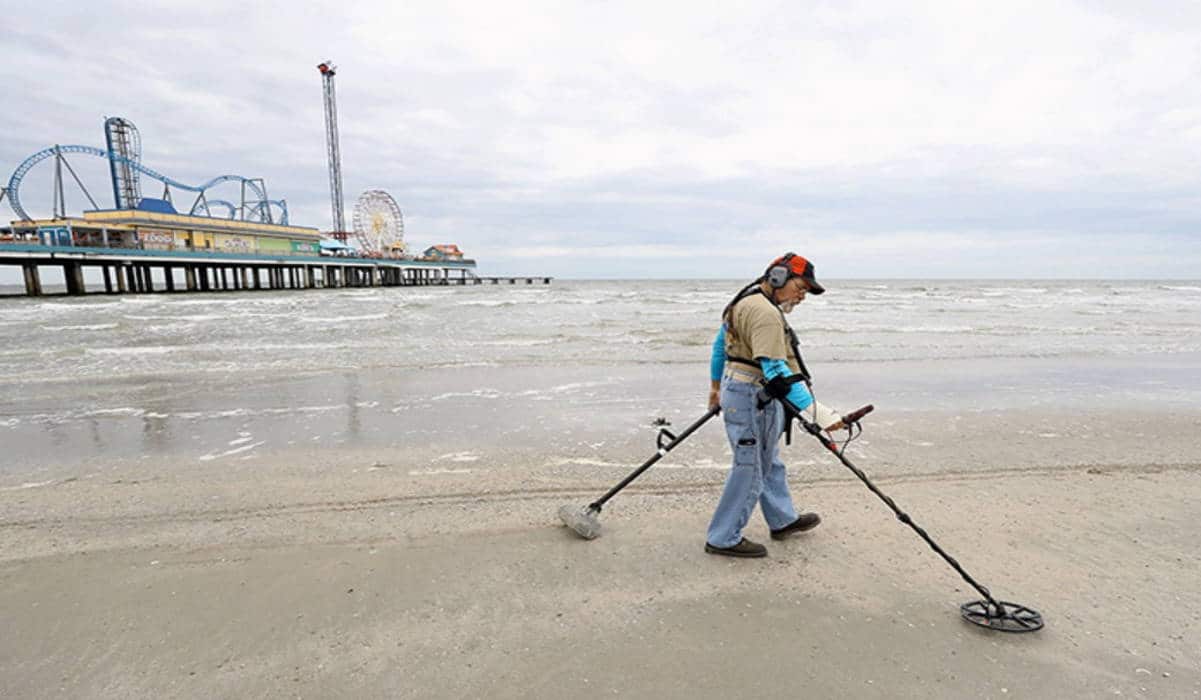Are you ready to uncover hidden treasures buried beneath the sand? As an avid traveler and treasure hunting enthusiast, I can tell you that nothing compares to the thrill of detecting shiny coins and unique artifacts while strolling along a beautiful beach. This article will guide you through selecting the best metal detectors for beach use, share tips for an exciting treasure hunting adventure, and highlight some memorable experiences. Whether you’re a seasoned detectorist or a novice, there’s something for everyone!
Understanding Beach Metal Detectors
Before diving into specific models, it’s essential to understand what makes a metal detector suitable for beach use. Here are some key factors:
- Waterproof Capability: Opt for models that are waterproof or at least water-resistant to handle wet sand and splashes.
- Search Coil Size: Larger coils cover more ground but may struggle with detecting small items. Small coils are better for finding tiny treasures.
- Discrimination Features: A good detector will allow you to differentiate between valuable items and trash.
- Weight and Balance: Lightweight detectors reduce fatigue during long hunts.
Top Metal Detectors for Beach Treasure Hunting

Here’s a comparison of some of the best metal detectors on the market for beach hunting:
| Model | Waterproof | Frequency | Weight | Price | Rating |
|---|---|---|---|---|---|
| Minelab Equinox 800 | Waterproof to 10ft | 5-40 kHz | 3.2 lbs | $999 | 4.9/5 |
| Garrett AT Pro | Waterproof to 10ft | 15 kHz | 3.03 lbs | $599 | 4.6/5 |
| Bounty Hunter Gold Digger | Water-resistant | 6.6 kHz | 2.6 lbs | $79 | 4.3/5 |
| XP Deus | Waterproof (with accessory) | 4-80 kHz | 2.5 lbs | $1,299 | 4.8/5 |
| Fisher F22 | Water-resistant | 7.69 kHz | 2.3 lbs | $199 | 4.5/5 |

Reviews and Ratings
Minelab Equinox 800
The Minelab Equinox 800 is lauded for its versatility and performance. It excels in both freshwater and saltwater, making it a top choice for beach hunters.
Rating: 4.9/5 (Source: Amazon)
Pros: Exceptional depth detection, lightweight, multiple frequency capabilities.
Cons: Higher price point may deter beginners.

Garrett AT Pro
This reliable detector features Pro Mode Audio, which helps you identify targets more accurately. The Garrett AT Pro is a solid investment for any beachcomber.
Rating: 4.6/5 (Source: Best Buy)
Pros: Good depth and discrimination, durable build.
Cons: Requires practice to master.
Bounty Hunter Gold Digger
A great entry-level detector, the Bounty Hunter Gold Digger offers decent features for its price. It’s lightweight and easy to use, ideal for kids and adults alike.
Rating: 4.3/5 (Source: Walmart)
Pros: Very affordable, user-friendly.
Cons: Limited features compared to higher-end models.

XP Deus
The XP Deus offers advanced features and is highly customizable. Its wireless design is a modern touch for serious treasure hunters.
Rating: 4.8/5 (Source: eBay)
Pros: Lightweight, excellent sensitivity, customizable settings.
Cons: Expensive and requires a learning curve.
Fisher F22
This is another excellent entry-level option. It’s lightweight, easy to handle, and provides satisfactory performance for beginners wanting to explore beaches.
Rating: 4.5/5 (Source: Home Depot)
Pros: Affordable price, good for beginners.
Cons: Limited depth compared to higher-end models.

Travel Tips for Beach Metal Detecting
Choosing the Right Beach
Your choice of beach can significantly affect your treasure hunting success. Here are some factors to consider:
- Local Regulations: Always check if metal detecting is allowed on the beach.
- Tourist Areas: Beaches frequented by tourists may yield more coins and lost items.
- Seasonal Activities: Look for beaches that host events or festivals where valuables can be lost.

Best Times to Detect
The best time for beach detecting is during low tide. More sand is exposed, increasing your chances of finding treasure. Additionally, consider going early in the morning or late afternoon when beachgoers are fewer.
Gear Essentials
- Headphones: Invest in quality headphones to hear the subtle sounds of your detector.
- Digging Tools: A good shovel and a sand scoop are essential for recovering items quickly and efficiently.
- Waterproof Bag: Protect your gear from water and sand with a sturdy bag.

Destination Highlights for Metal Detecting Enthusiasts
Here’s a list of some of the best beach destinations to combine your love for travel with metal detecting:
1. Daytona Beach, Florida
Known for its long stretches of sand and vibrant atmosphere, Daytona Beach is a treasure hunter’s paradise. The rich history and frequent tourist traffic make it an ideal spot for finding coins and jewelry.
2. Cape May, New Jersey
Not only does Cape May offer beautiful Victorian architecture, but its beaches are also a hotspot for treasure hunters. With its rich maritime history, many artifacts can be uncovered here.
3. Outer Banks, North Carolina
The Outer Banks are a historic area known for shipwrecks and pirate folklore. The beaches here have yielded various treasures, making it a favorite among detectorists.
4. Coronado Beach, California
This beach is famous for its golden sand and beautiful surroundings. With many locals and tourists frequenting it, you’re likely to find lost items while enjoying stunning views of the Pacific Ocean.
5. South Padre Island, Texas
South Padre Island offers sandy beaches and a vibrant tourism scene, making it an exciting destination for metal detecting. The warm waters attract many visitors, leaving behind hidden treasures.
Pros and Cons of Metal Detecting at the Beach
Pros
- Exciting treasure hunting experience
- Opportunity to explore beautiful beaches
- Potential to find valuable items
Cons
- Weather can affect detecting conditions
- Metal detecting may be restricted in certain areas
- Can be physically demanding
Frequently Asked Questions (FAQs)
What is the best type of metal detector for beach use?
The best metal detectors for beach use are those that are waterproof, equipped with the right frequency for saltwater, and have discrimination features to filter out unwanted metals.
Can I use a regular metal detector at the beach?
While some regular metal detectors can work at the beach, they may struggle with saltwater and wet sand. It’s best to use a model designed for beach conditions.
Is metal detecting allowed on all beaches?
No, metal detecting regulations vary by location. Always check local laws and obtain any necessary permits before detecting.
What should I do if I find something valuable?
If you find something valuable, check local laws regarding ownership of found items. In some cases, you may need to report your find.
How do I clean coins and jewelry found at the beach?
Carefully rinse your finds in clean water and avoid using harsh chemicals. For coins, consider using a gentle brush or cloth for cleaning.
Conclusion
Metal detecting at the beach can be a rewarding and enjoyable activity that combines adventure, history, and the thrill of discovery. By choosing the right metal detector and being mindful of beach conditions and regulations, you can increase your chances of finding treasures buried beneath the sand. So grab your gear, hit the beach, and who knows? You might just uncover your next great find!